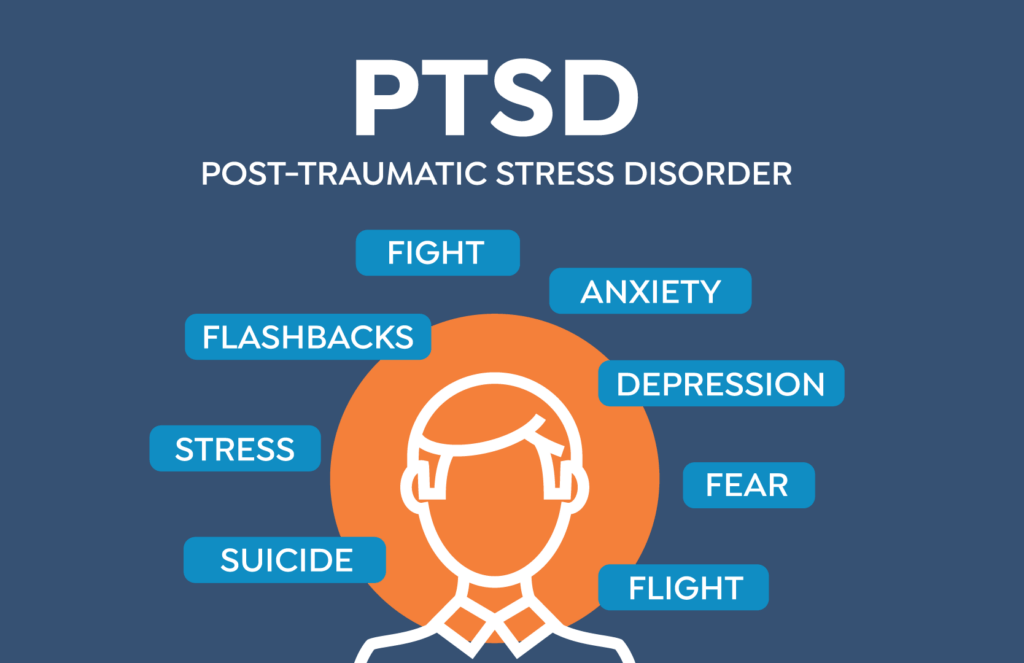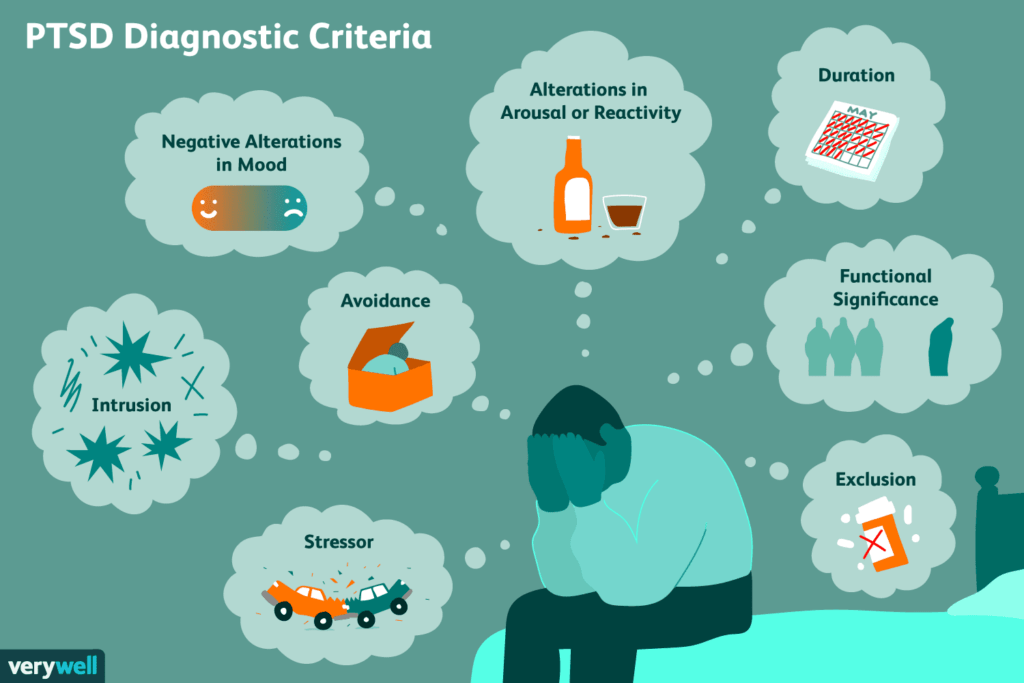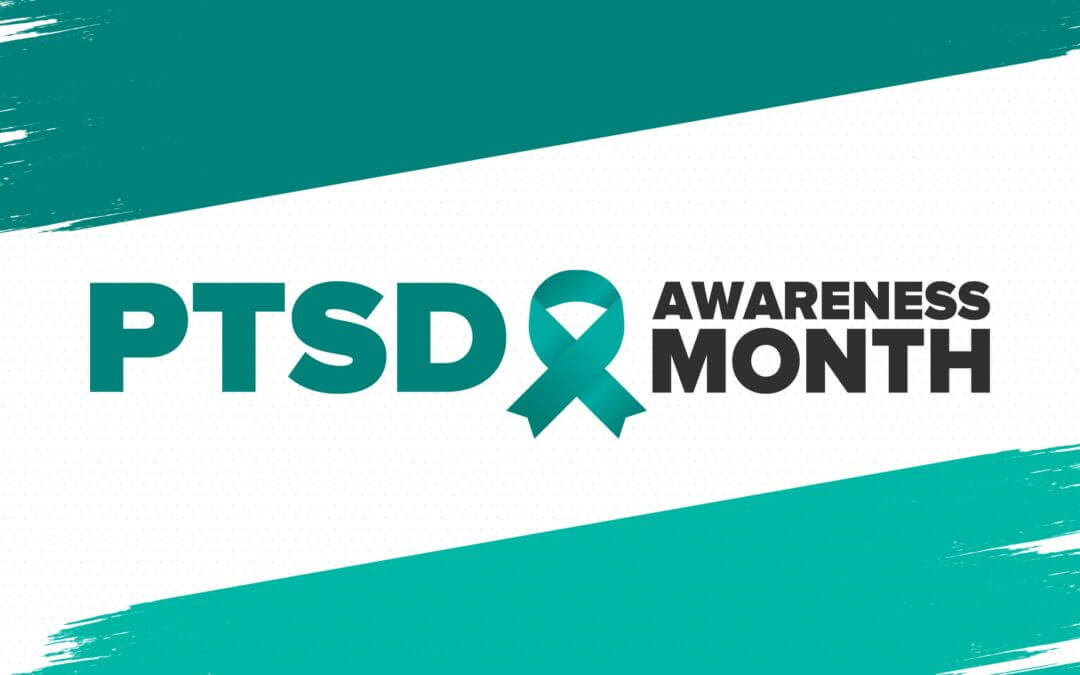Post-traumatic stress disorder (PTSD) is a mental health issue that can develop after a distressing event. The event may be dangerous, life-threatening, shocking, or very scary. Examples include:
- Accident.
- Fire.
- Military combat.
- Natural disaster, such as a tornado.
- Physical abuse.
- Sexual assault or rape.
- Sudden death of a loved one.
- Terrorist attack.
The traumatic event may have happened to you, or you may have seen it happen to someone else.
It’s normal to feel upset after something like that happening. You may have trouble sleeping, eating or doing things you enjoy for a little while. But with PTSD, symptoms last longer than a few months and interfere with your life.
How common is PTSD?
At least half the people in the United States have experienced a traumatic event. Among this group, 10% of men and 20% of women develop PTSD. Women experience neglect or abuse during childhood more often than men. They also experience sexual assault and domestic violence more often. Women tend to experience trauma differently than men, too.
Are some people more likely to develop PTSD than others?
There’s no way to predict who will develop PTSD from a traumatic event. However, PTSD is more common in people who have experienced:
- Certain types of trauma, particularly military combat or sexual assault.
- Injury during the event.
- Lack of support from loved ones after a traumatic event.
- Long-lasting or repeated trauma.
- Personal history of anxiety or depression, even before the traumatic event.
- Strong initial reaction to the event (for example, shaking or throwing up).
- Very intense trauma.

SYMPTOMS AND CAUSES
What causes PTSD?
A traumatic event causes PTSD. But, scientists aren’t sure why some people get PTSD and others don’t.
What are the symptoms of PTSD?
PTSD symptoms vary from person to person. Still, everyone with PTSD experiences one or more of the following:
- Avoiding things: You may avoid people or situations that remind you of the event. Examples include friends you met in the military service, the part of town where you experienced the trauma, or crowds in general. Some people with PTSD try to stay so busy that they don’t think about the event.
- Being on edge: The disorder can make it hard for you to relax or enjoy the things you used to. You may feel jittery or anxious. Maybe you’re easily startled or always expect something bad to happen. You also may have trouble sleeping or concentrating.
- Having negative thoughts and feelings: PTSD can make you feel negative, angry, sad, distrustful, guilty, or numb.
- Reliving or re-experiencing the traumatic event: This can take the form of flashbacks or dreams. Perhaps a noise like a car backfiring or seeing something similar (for example, a fire) will trigger sudden, unwelcome memories.
How does PTSD affect your life?
PTSD can lead to other issues with your health and life, such as:
- Alcohol and drug use.
- Anxiety.
- Depression.
- Thoughts about harming yourself or others.
- Problems at work and in your personal relationships.
DIAGNOSIS AND TESTS
How is PTSD diagnosed?
There’s no scan or blood test for PTSD. If you’ve experienced a traumatic event and are having symptoms of PTSD, talk to a healthcare provider.
The healthcare provider can make the diagnosis based on a conversation about your symptoms. To be considered PTSD, symptoms must last more than a month and interfere with your life.
MANAGEMENT AND TREATMENT
The most effective treatment for PTSD combines medication and trauma-focused therapy.
Some medications can help your body produce more substances that manage stress and emotions. They fall into two broad categories:
- Selective serotonin reuptake inhibitors (also called SSRIs).
- Serotonin-norepinephrine reuptake inhibitors (also called SNRIs).
Trauma-focused therapy examines the event and its meaning. It can be done a few different ways:
- Cognitive processing therapy: This method identifies negative thoughts and beliefs about the traumatic event and tries to change them.
- Eye movement desensitization and reprocessing (EMDR): You focus on specific sounds or movements introduced by the therapist while you think about the event. It aims to make the event less upsetting over time.
- Prolonged exposure therapy: This method encourages you to face thoughts, feelings and situations you’ve been avoiding. You may talk about your trauma over and over. You may also work toward doing things you’ve been staying away from.
PREVENTION
Can I prevent PTSD after a traumatic event?
You can’t necessarily prevent a traumatic event. But, some studies show that certain steps may help you prevent PTSD afterward:
- Ask for help and support.
- Believe that you can manage your emotions.
- Find positive meaning from the trauma.
- Focus on positive emotions and laughter.
- Help other people.
- Practice positive thinking.
- Stay in constant contact with important people in your life.
- Talk to loved ones about the event.
- Think of yourself as a survivor instead of a victim.

Do you have PTSD?
If you answer yes to three or more of the questions below, you may have PTSD and it’s worthwhile to visit a qualified mental health professional.
- Have you witnessed or experienced a traumatic, life- threatening event?
- Did this experience make you feel intensely afraid, horrified, or helpless?
- Do you have trouble getting the event out of your mind?
- Do you startle more easily and feel more irritable or angry than you did before the event?
- Do you go out of your way to avoid activities, people, or thoughts that remind you of the event?
- Do you have more trouble falling asleep or concentrating than you did before the event?
- Have your symptoms lasted for more than a month?
- Is your distress making it hard for you to work or function normally?
OUTLOOK / PROGNOSIS
What is the outlook for people with PTSD?
Without treatment, PTSD can get worse over time. But treatment can help, even if the traumatic event was many years ago. For some people, treatment can cure PTSD. For others, it can make symptoms less intense.
Positive ways of coping with PTSD:
- Learn about trauma and PTSD.
- Join a PTSD support group.
- Practice relaxation techniques.
- Pursue outdoor activities.
- Confide in a person you trust.
- Spend time with positive people.
- Avoid alcohol and drugs.
- Enjoy the peace of nature.
Why you should seek help for PTSD
Early treatment is better. Symptoms of PTSD may get worse. Dealing with them now might help stop them from getting worse in the future. Finding out more about what treatments work, where to look for help, and what kind of questions to ask can make it easier to get help and lead to better outcomes.
PTSD symptoms can change family life. PTSD symptoms can get in the way of your family life. You may find that you pull away from loved ones, are not able to get along with people, or that you are angry or even violent. Getting help for your PTSD can help improve your family life.
PTSD can be related to other health problems. PTSD symptoms can make physical health problems worse. For example, studies have shown a relationship between PTSD and heart trouble. Getting help for your PTSD could also improve your physical health.
Getting professional help for PTSD
If you suspect that you or a loved one has post-traumatic stress disorder, it’s important to seek help right away. The sooner PTSD is treated, the easier it is to overcome. If you’re reluctant to seek help, keep in mind that PTSD is not a sign of weakness, and the only way to overcome it is to confront what happened to you and learn to accept it as a part of your past. This process is much easier with the guidance and support of an experienced therapist or doctor.
It’s only natural to want to avoid painful memories and feelings. But if you try to numb yourself and push your memories away, PTSD will only get worse. You can’t escape your emotions completely—they emerge under stress or whenever you let down your guard—and trying to do so is exhausting. The avoidance will ultimately harm your relationships, your ability to function, and the quality of your life.

